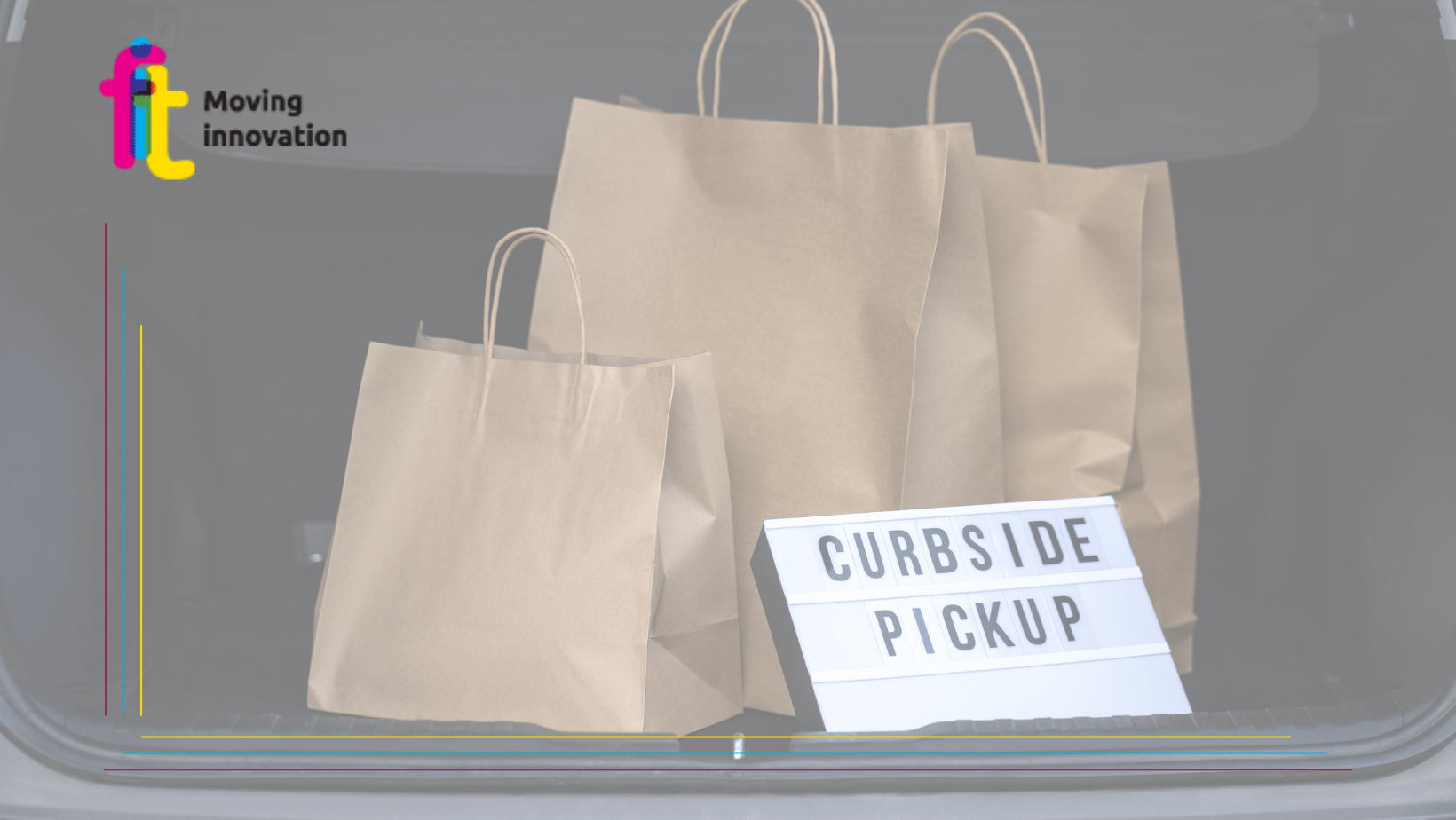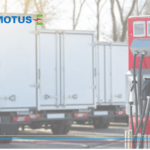Reread the first part of the in-depth study here.
The opportunities offered to European cities by curbside management
During the pandemic, many restaurants were forced to run openings with limited customer capacity due to social distancing measures. In many cities, restaurateurs have therefore been allowed to extend their service to the curbside area (thus including part of the street). In addition, many restaurateurs have activated the curbside pick-up service by booking from an app on the phone.
The main levers that prompted restaurateurs to activate this curbside pick-up service offer are immediate customer gratification, cost-effectiveness, ease of use of the digital system and transparency (app). This is therefore an excellent example of how an effective integration of digital and physical innovation can lead to a service innovation both to improve the customer’s (‘contactless’) shopping experience, which is greater even than in traditional food purchasing channels, and to make immediate profit margins, also considering the savings in not using a fleet for deliveries.
Restaurants and shops are increasingly using curbside pick-up solutions – supported by a mobile application – to generate more profit and achieve a higher level of customer loyalty.
There are curbside solutions, such as the one developed by Mobiquity, that have generated so much customer loyalty that the service offered is a durable and profitable model even after the pandemicas shown by a survey Mobiquity itself conducted in 2020 among 400 users, asking whether or not they would use a digital curbside pickup system after the pandemic.
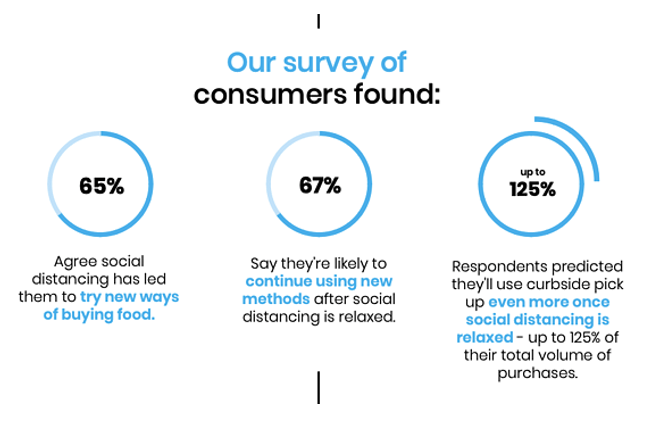
Image source: Urbis
The figure shows a study done in Melbourne by Urbis in 2021 in which the economic impact of a conversion of a private car parking area into a ‘dining parklet’ was evaluated, realised especially during the Covid-19 period with restrictions and social distancing, furnishing a commercial street with leisure and dining areas, possibly sustainable, with a major urban redevelopment and at the same time a business model that is also aimed at the quality of life of citizens.
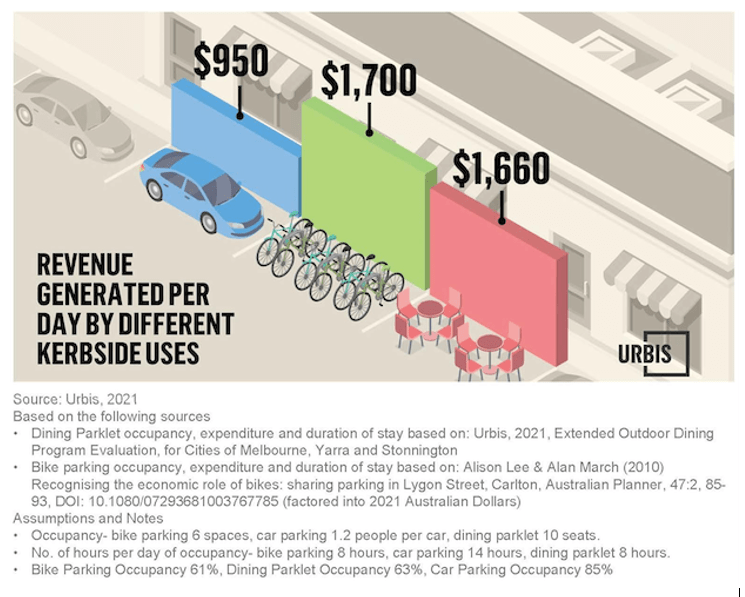
Image source: Urbis
In addition, some European cities, following in the footsteps of North American cities such as Seattle and Toronto, pioneers in dynamic and flexible curbside management, are finally beginning to adopt policies and instruments that are in line with current demand dynamics at the urban and metropolitan level.
In fact, the concept of “Mobility Hubconcerning shared spaces, a way of integrating mobility services through virtuous curbside management. These are intermodal ‘stations’, with physical, digital and programmed elements (e.g. events), to serve transport and interconnections between different urban functional areas, but also facilitate the consideration of socio-economic aspects and guarantee essential services. They are structures based on identifiable and immediately recognisable innovative concepts (positioned according to the specific needs of the city or area concerned) where people can access a range of mobility services with an integrated and digital approach. This concept is spreading among European cities, whose research and experimentation is supported by EU funding. Mobility Hubs do not only concern the curbside but the urban mobility system and service delivery spaces (e.g. transit stations). In Germany, the city of Bremen is a leader in the development of the Mobility Hub concept (referred to as ‘mobil.punkte’ – as of 2018, Bremen has introduced as many as 27 mobility hubs in public spaces, and the number is increasing year by year) with an integrated service system (ACES system – autonomous, connected, electric and shared), which provides charging stations for electric vehicles, smart lockers, kiosks, MaaS, cargo bikes for last-mile deliveries, minimising congestion in urban areas, trips and kilometres travelled, bringing about a significant reduction in congestion and its inefficiencies, especially when caused by double-parking or inadequate use of available spaces.
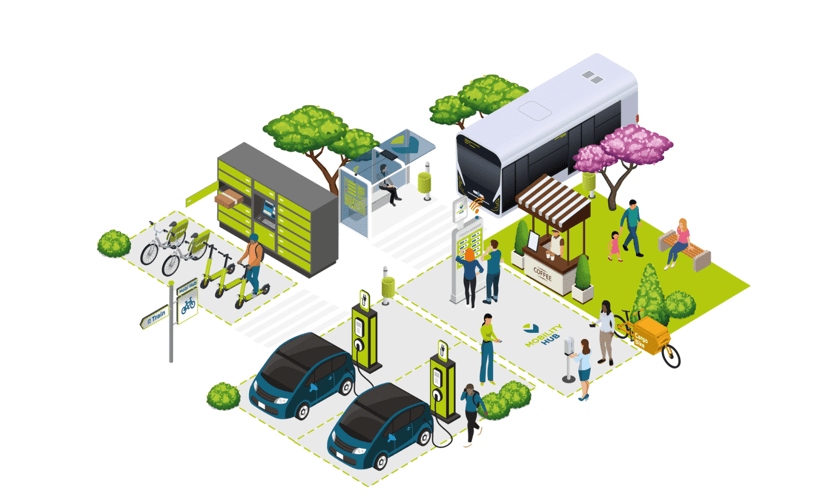
Conceptualisation of Mobility Hub – Image source: CoMoUK
Logistics and transport operators, involved in deliveries, currently subject to considerable stress due to the unavailability of adequate staging areas (generating inefficiencies to the entire logistics system, as well as a high level of customer dissatisfaction), benefit by finding available staging areas, rethinking business models that favour proximity delivery (omnichannel, micro-hub, micro fulfilment). They will thus be able to respond more efficiently and sustainably to the irrational rush to buy online (including bulk buying, which was widespread during the pandemic).
Curbside management, and the virtuous and promiscuous use of shared urban spaces, enables cities to activate a transition from traditional parking policies to an integrated, digital and dynamic use of the road network, adopting tools for intelligent and flexible management of city time and space. Data Sharing a winner for everyone to profile demand and its needs, facilitating relationships of trust and new models of cooperation between the public and private sectors, enable alignment with the priorities and functions performed by the urban areas concerned, and thus intelligent planning of urban mobility, supporting the realisation of the Physical Internet roadmap and the priorities defined by the European Commission on the Green Deal concerning the decarbonisation of European cities and digital transformation by 2050, favouring public and private investment.
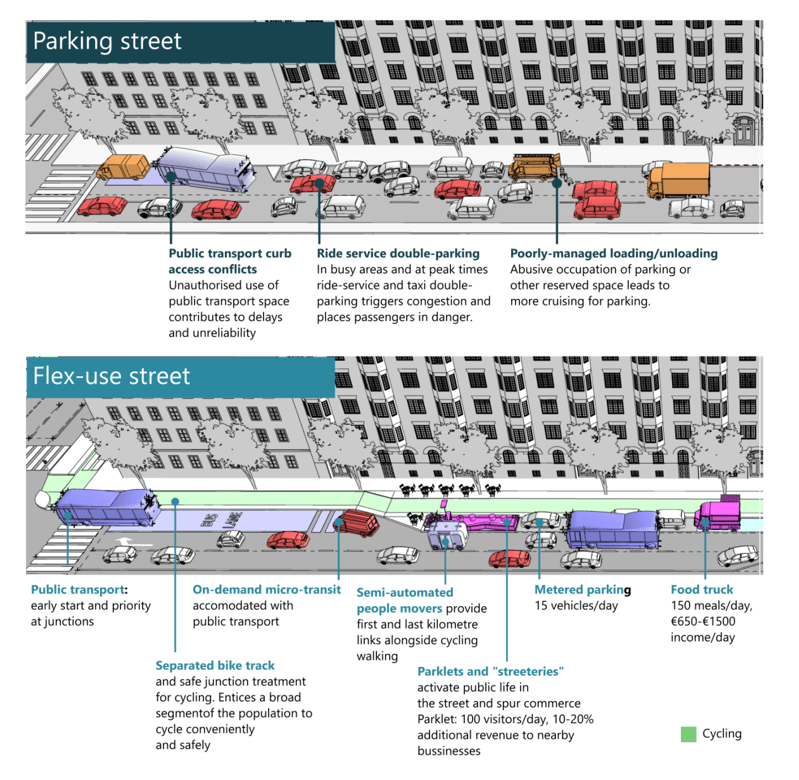
The shared-use city: managing the curb Image source: OECD/ITF 2018
It is therefore a necessary ambition to design a virtuous city model in Europe that allows, starting from the identification of the main areas of conflict between curbside users, the full satisfaction of the needs of the city usersfacilitating dialogue towards the acceptance of a business model (and governance) as a service. In this vision, cities need to equip themselves with a network of innovative services to ensure seamless and contactless experiences for their users, and an urban mobility plan that takes into account the different functionalities and priorities of services, capable of generating revenue from existing assets and encouraging new integrated mobility models and decision-making tools based on a smart approach in planning, with definite positive impacts on road congestion, the environment and social aspects, also capable of generating new skills and new types of specialised jobs.
Strategic dialogue on curbside management between leading European associations and FIT’s frontline commitment
(logistics), POLIS (cities) and EPA (parking), supported by FIT and the University of Erasmus, have established a stable dialogue since 2020 to promote a shared approach to curbside management between European cities and parking and logistics operators.
The aim of the initiative is to gain a deeper insight into the level of maturity and receptiveness on the part of the key players by facilitating the introduction of a new model of urban mobility, especially with regard to deliveries and logistics.
To this end, an initial European survey was carried out in November 2020, the results of which were presented at a working session organised by POLIS on 17 December 2020, where Paola Cossu, CEO of FIT, was a speaker and introduced the concept of curbside management.
Furthermore, in June 2021, FIT organised a Special Session on Curbside Management in the Physical Internet within the International Conference on IPIC (2021). The speakers, again moderated by Paola Cossu, presented different points of view, that of those who develop curbside technology platforms serving European cities – such as, for example, the one developed for the city of Barcellona da Urban Radar – that of logistics operators, represented by FM Logistics who presented the project PLUME and POLISas a network of European cities, which represented the point of view of public administrations. At this Special Session, the University of Erasmus presented the results of the second European survey on curbside management, with a specific focus on urban logistics.
For more information on the Special Session: https://www.fitconsulting.it/una-sessione-speciale-sul-curb-side-management-in-the-physical-internet-allipic-2021-paola-cossu-ceo-di-fit-consulting-moderator-e-speaker-dell8-conferenz/)
Author of the article:
Paola Cossu – CEO of FIT Consulting and vice chair of the ALICE Urban Logistics Thematic Group
Email: [email protected]

